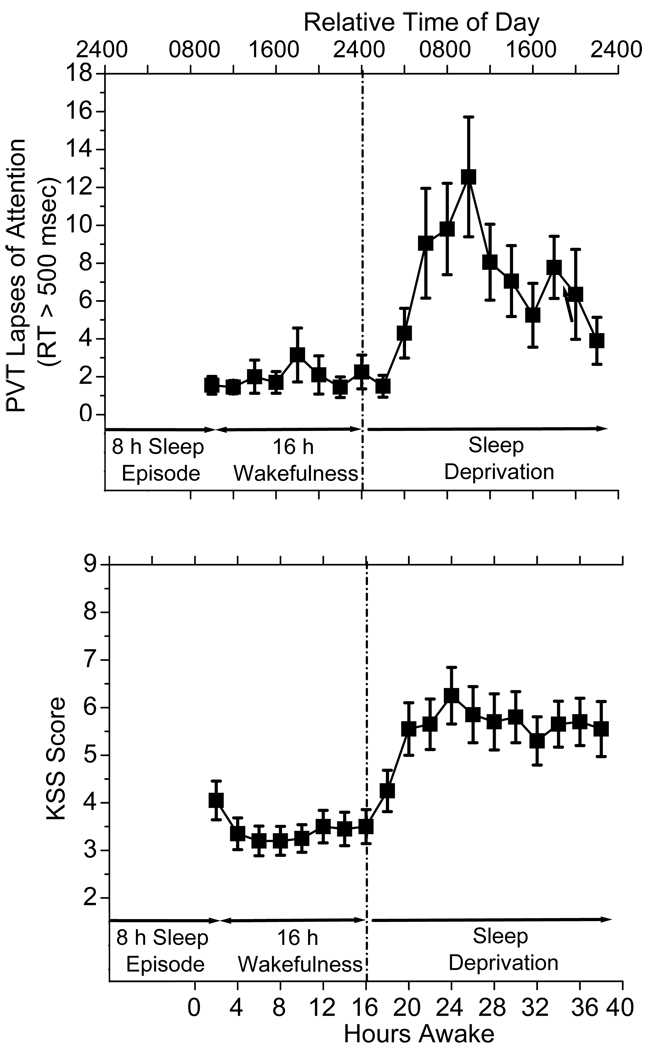Figure 1.
Subjective sleepiness (KSS) and psychomotor vigilance test performance scores (PVT Lapses of Attention; Reaction times > 500 msec) across 40 hours of total sleep deprivation. As seen, sleepiness and performance lapses are low during the habitual day across the first ~16 hours of wakefulness, whereas thereafter, sleepiness and PVT lapses of attention increase across the habitual night with peaks around 26 hours awake. PVT lapses, and to a lesser extent KSS sleepiness, then improve the next day because the circadian clock promotes wakefulness even though sleep did not occur. These data show what would likely happen to sleepiness and performance on the first night shift in a series if shift workers did not nap prior to the shift.

